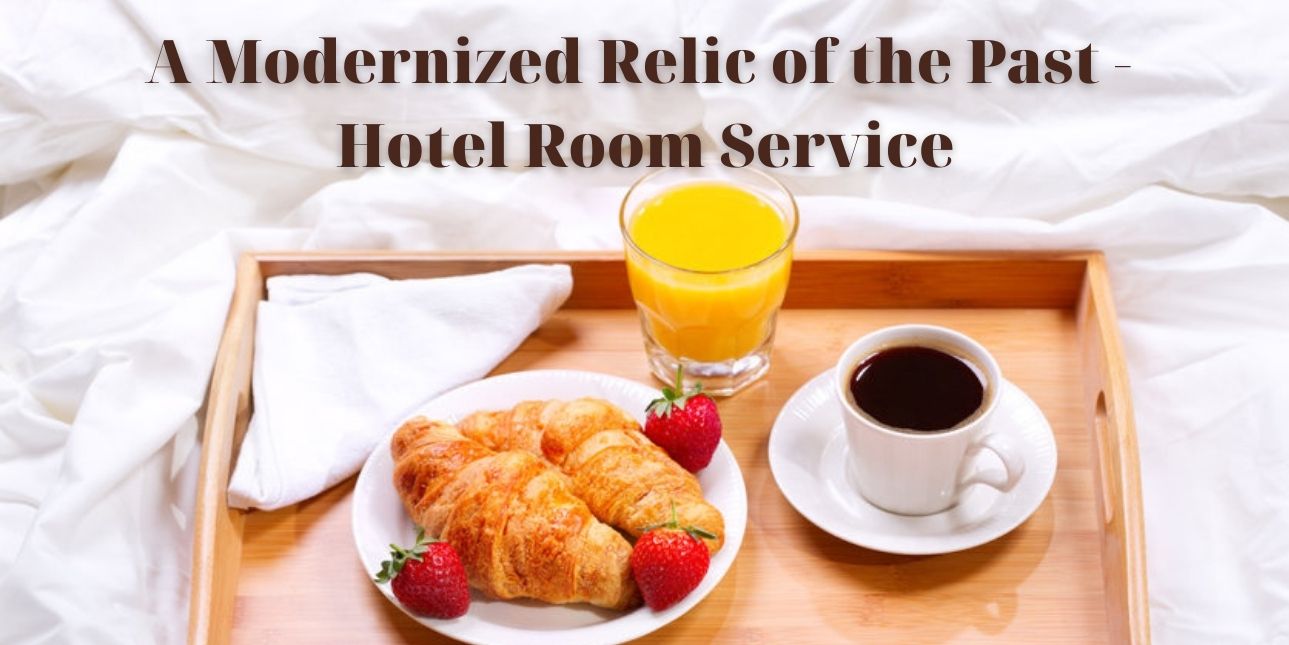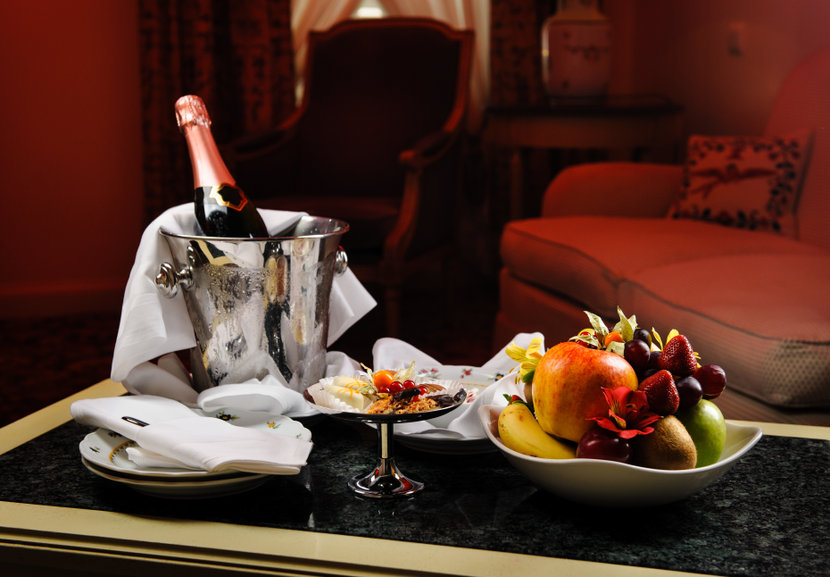
Sometimes a continental breakfast doesn't cut it for hotel guests. As an alternative, good foodservice can make your hotel kitchen an attractive place to dine. A substantial percentage of guests like to dine in hotel restaurants to skip the bustle of busy local tourist spots and enjoy the comfort of their hotel. Even with a successful kitchen, profits can seem middling. To maximize kitchen profits, offering in-room dining can be an excellent idea. Room service can be a viable option for guests looking for extra dining options. Most traveling businessmen, disabled guests, and families with young children would rather order in than go to the restaurant area, which can often be crowded.
To determine if your guests are more likely to order in-room dining, it is important to evaluate your clientele. Hotels in remote locations and with upscale restaurants can benefit greatly from offering room service as an amenity. Others that are located in busy spots with nearby local dining options may not have the luxury of hosting room-service guests. To establish a successful room service, you need to understand your menu offerings and location well. A modern and regularly updated menu can go a long way in retaining guests for meals at your hotel.
What is Room Service?
Room service hotels are usually midscale or upscale tier. Guests can order food using a menu electronically or over the phone and it is served to their rooms. It is common practice to bring the food on trays to individual rooms, but an even more elegant solution is to take a room service table to the guest’s room. Not everyone likes to dine in bed, so having a table adds to the special experience of ordering in. Room service can broadly be categorized into three categories:
- Centralized Room Service: Centralized room service revolves around the main kitchen in your hotel. Guests can order their food and it is brought to their rooms directly from the kitchen by a dedicated team of servers.
- Decentralized Room Service: Larger establishments often tend to use this type of room service to save time and provide better service. Instead of relying on a central kitchen, smaller pantries are assigned to cater to room service orders. Usually, each floor of the hotel has a dedicated pantry capable of delivering freshly prepared food within a matter of minutes.
- Mobile Room Service: This is one of the more uncommon types of room service because of its rare implementation. Resort hotels and vacation establishments with cottages and suites often employ delivery vans to deliver room service for individual orders. Since most guests do not leave the resort for just a quick meal or a snack, this type of room service provides an essential service.
What is Hotel Room Service and What Kind of Clientele Would it Attract?
If you own a hotel with room service, it is important to know your clientele. By knowing your guests and their needs, you can tailor your menu to their tastes and provide an enhanced dining experience overall. Most guests who order room service belong to the following four categories:
- Business travelers
- International travelers
- Disabled guests
- Families with young children
You may notice that most guests who belong to one or more of the above categories are not too adventurous with their meals. This would put less pressure on your kitchen to be creative and instead focus on providing a solid room service experience using fresh ingredients from their cooling units.
Pros and Cons of Offering Room Service
A case can be made against offering room service as it seems like an antiquated custom. Still, the number of guests who make regular use of this amenity suggests the practice should stay. In-room dining may not be profitable for all hotels, especially during off-peak hours, so it’s important to look at some of the reasons why a good room service experience can make or break your finances.
How Room Service in Hotels can Benefit Your Business:
- Offering good room service can help your hotel attain a higher status. Any hotel upward of two stars must have accessible dining options for guests.
- Guests with disabilities can have a natural way of relaxing and enjoying their meals in the comfort of their own rooms.
- Meals can be ordered at odd hours when the dining room is not open. Hotel kitchens can make full use of their refrigeration systems to provide round-the-clock service.
- For hotels located in scenic locations and remote areas, this may be the only form of in-hotel dining for guests.
- Service can still be offered to guests in unfavorable weather conditions.
Offering Room Service at Your Hotel - The Downsides:
- Proper room service mandates the presence of staff and the availability of trays, carts, flatware, and utensils at all times. This means extra expenses for the hotel.
- Some guests may like to venture out and explore local options instead of ordering hotel fare.
- Room service can often be expensive to sustain, leading to higher prices, both for the hotel and for guests.
- Food takes time to reach guests and may lose its freshness during transport.
Increasing Your Profits Through Room Service
Traditional room service may not necessarily be as profitable for hotel owners as it seems. Some ways you can use this amenity to your advantage are:
- Advertise and Customize Your Room Service Menu: It is a great idea to advertise your room service options in the hotel lobby and other conspicuous places. You can tailor your menu to suit foods that would be easy to consume if the guests want something simple and non-messy to eat.
- Use Technology to Your Advantage: As with most contemporary businesses, guests prefer minimal interaction while ordering their food. You can make use of online ordering systems and apps to boost sales.
- Partner with Local Restaurants: You don’t necessarily need to use your own kitchen for room service. You can boost the local economy, while still offering guests a taste of the local cuisine by partnering with nearby restaurants to take care of food preparation.
- Establish a Mini-Mart Within Your Premises: By establishing a small convenience shop inside your hotel, you can provide guests the option to choose quick meals that don’t break the bank. This would also help you in reducing overheads like employing staff at odd hours and expensive room service equipment.
Room service in hotels is often considered expensive and many guests tend to avoid it. However, with careful planning and management, you can use this customary amenity to your advantage. By offering standard fare that is not unaffordable to your clientele, you can attract many guests who prefer dining from the comfort of their rooms. Mid-tier and upscale restaurants can boost profits by providing round-the-clock service to guests, which would be crucial during odd hours when other services are not available. By carefully selecting and advertising your menu, you can increase profits through this traditional service and increase your hotel’s reputation.










